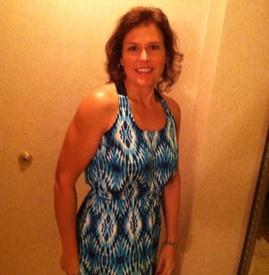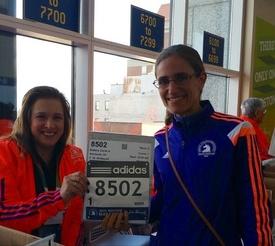heart rate training- fat burning - carb loading?

what923
Posts: 100 Member
I'm reading The big book of health & fitness by Philip Maffetone. Great book (80% of it)- although I won't be following his 'weight lifting' advice.
I'm curious what other opinions/ideas runners have about training at much lower heart rates so that your body acclimates to burning fat for fuel? This is a stem off of all the reading I have been doing about lower carb diets too. I used to carb load to fill my glycogen stores before a half marathon...so if I'm not loading but trained to burn fat for fuel....is that just as good? Should you do both presuming the body will burn the easy carbs first and then just flip over to fat mode? I have completed one full marathon and through proper training and fueling I never hit the infamous 'wall'.
Curious because I'm working on cleaning up my diet much more and many theories say less carbs (by way of breads/pastas, etc....would still get carbs from fruits, veggie & high quality grains).
Thanks for sharing any thoughts, advice or experience. Happy running!
I'm curious what other opinions/ideas runners have about training at much lower heart rates so that your body acclimates to burning fat for fuel? This is a stem off of all the reading I have been doing about lower carb diets too. I used to carb load to fill my glycogen stores before a half marathon...so if I'm not loading but trained to burn fat for fuel....is that just as good? Should you do both presuming the body will burn the easy carbs first and then just flip over to fat mode? I have completed one full marathon and through proper training and fueling I never hit the infamous 'wall'.
Curious because I'm working on cleaning up my diet much more and many theories say less carbs (by way of breads/pastas, etc....would still get carbs from fruits, veggie & high quality grains).
Thanks for sharing any thoughts, advice or experience. Happy running!
0
Replies
-
I have found I perform best in training when I tailor my carb intake to the amount I am exercising. When I am between 50-65 miles per week, I am taking in 350+ carbs per day. HOwever, when I am doing 30 miles per week, I take in much less. I used Matt Fitzergalds table in Racing Weight and also his newer book New Rules of Marathon and Half marathon training.
I do some of my long runs fasted and others I take in carbs for a good mix of teaching my body to store more glycogen and learning to take in carbs for racing/testing out fueling plans. I think most research shows there is no benefit to carb loading before a race that lasts 1.5-2 hours but great improvement with loading when you are doing a longer race. I do not feel you will get as good of a result with a low carb diet and/or not carb loading before a 2+ hour race.
As far as heart rate goes, If your goals are faster long distance races, then it's a good idea to do most of your training in a lower zone. Fitzgerald advocated an 80/20 approach and I follow that pretty well. 6 days of running a week, 4 in easy zones (1-2) with one threshold day or speed day and one day with strides or fast finish running that gets me up into higher zones.0 -
Carrieendar wrote: »
I do some of my long runs fasted and others I take in carbs for a good mix of teaching my body to store more glycogen and learning to take in carbs for racing/testing out fueling plans. I think most research shows there is no benefit to carb loading before a race that lasts 1.5-2 hours but great improvement with loading when you are doing a longer race. I do not feel you will get as good of a result with a low carb diet and/or not carb loading before a 2+ hour race.
As far as heart rate goes, If your goals are faster long distance races, then it's a good idea to do most of your training in a lower zone. Fitzgerald advocated an 80/20 approach and I follow that pretty well. 6 days of running a week, 4 in easy zones (1-2) with one threshold day or speed day and one day with strides or fast finish running that gets me up into higher zones.
Ditto!
0 -
Galloway says pretty much the same thing. Burning glycogen in the first 15 minutes, then your body starts burning fat. He says long slow runs are better for fat burning because they are aerobic and permit fat burning. Too fast and there is insufficient oxygen and body switches to glycogen again.0
-
The Half is sufficiently short that the CHO vs fat isn't an issue.
If you refer to this document, columns I and J show how much CHO I burned during a Half about 18 months ago. All told, I burned about 1032 cals from CHO which is about 258 grams.
An untrained individual (quoting Dr. Noakes) will have just under 300 grams of CHOin the muscles and liver. Put that same person on a 75% CHO diet and that number goes to 490 grams. A trained athlete, training daily, will have about 550 grams of CHO. This range of numbers tells us that you could run a Half without taking on any fuel. The brain burns glycogen at the rate of about 9 gm/hr so (and only glycogen from the liver) we're low on CHO when we first wake up.0 -
This article pretty much hit the nail on the head for me.0
-
There is a tendency to go faster as you train for a marathon (because you can) but for my last marathon I focused much more on the slower running and keeping my heart rate down. I was using one of Galloway's plans that had some fast (marathon pace) repeats blended in on certain days according to the plan. But much of the distance was run at a slow pace. It did really crank down my half-marathon times (I am just over my goal of 2:00).
I've also found Matt Fitzgerald's guidance similar with his 80/20 rule. For the last marathon, I used his "fueling plan" and found that I've felt the best I have felt at the end of the marathon even though I had some cramps associated with the cold.
I do and have always trained with an HRM. So, I have lots of data on my pace and heart rate data over time. But I am also cautious and tend to run both half and full marathons at a comfortable pace so that it feels like I'm running at about 70% of whatever my current capacity is.
It isn't so much as just flipping over from one mode to another (except when you functionally run out of glycogen, then your body really has no choice), because you are always burning a blend of fat and glycogen over the longer distances. The training, I think, has your body trained to operate a different ratio of fat to glycogen.
0
This discussion has been closed.





